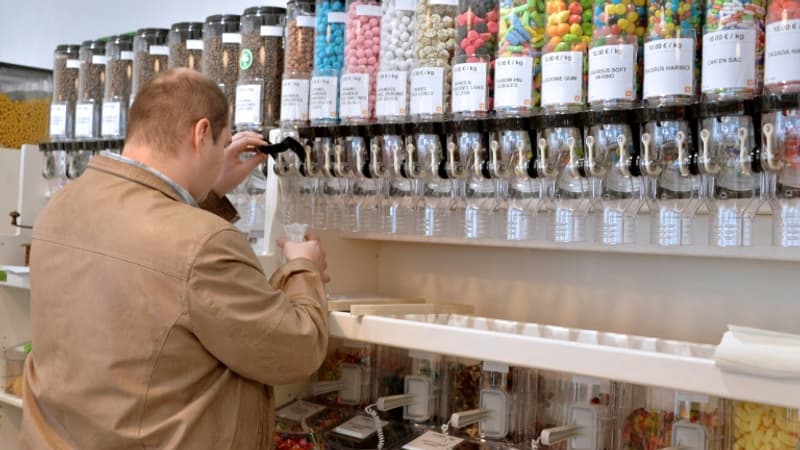Elisabeth Borne’s government is reducing the range of products available for sale in bulk. In fact, on Wednesday a decree establishing the list of products that cannot be sold in bulk for public health reasons was published in the Official Gazette.
First of all, dairy products are heat-treated to comply with specific European hygiene standards applicable to food products of animal origin or even raw milk “except when delivered in bulk directly to the final consumer by the packaging operator.” full view of the consumer or through an automatic liquid dispenser.
Products for babies or animal feed
There are also infant formulas and follow-on formulas, cereal-based formulas and baby foods, foods for special medical purposes, and total daily ration substitutes for weight control. Animal products are a widely represented category on this list, from feed materials and compound feeds to raw feeds, through additives and premixes intended for your feeds. The decree includes food supplements and frozen products in this list.
Finally, this list of products that cannot be sold in bulk also includes non-food categories such as biocides, batteries and electric accumulators, tampons and, finally, substances or mixtures whose packaging is provided with a child-resistant closure. or carries a touch sensitive label. indication of danger.
A wholesale conditional on an assisted service or a suitable distribution device
Before this list, another subsection of the Decree lists the products whose bulk sale is conditional on being carried out in assisted service or through a distribution device suitable for free bulk sale. This is the case of single-use materials and objects intended to come into contact with food that cannot be washed before use, or single-use baby nappies and regular sanitary napkins.
Also affected are toilet paper, kitchen towels, paper napkins, tissues, single-use cotton swabs and absorbent cotton items and other single-use items made of cotton or other vegetable fibers intended for to wash or dry the face and body and cosmetic products for which a “Test test” is necessary for conservation and microbiological controls of the finished product.
In the food sector, this second list only mentions perishable products that, after a short period, may represent a danger to human health and those stored at a temperature equal to or less than -12°C when stored. they sell to the consumer.
Source: BFM TV


